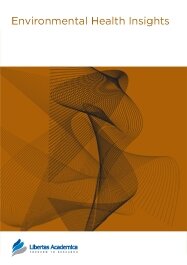

Publication Date: 23 Sep 2008
Journal: Environmental Health Insights

1Harvard School of Public Health, Boston, MA. 2Division of General Medicine and Primary Care, Beth Israel Deaconess Medical Center, Harvard Medical School, Boston, MA. 3Department of Medicine, Brigham and Women’s Hospital, Harvard Medical School, Boston, MA. 4Department of Environmental Health Sciences and Department of Internal Medicine, University of Michigan Schools of Public Health and Medicine, Ann Arbor, MI.
Abstract
Immigrants comprise vulnerable populations that are frequently exposed to a multitude of environmental and occupational hazards. The historical context behind state and federal legislation has helped to foster an environment that is particularly hostile toward caring for immigrant health. Current hazards include toxic exposures, air and noise pollution, motor vehicle accidents, crowded living and work environments with inadequate ventilation, poor sanitation, mechanical injury, among many others. Immigrants lack the appropriate training, materials, health care access, and other resources to reduce their exposure to preventable environmental and occupational health risks. This dilemma is exacerbated by current anti-immigrant sentiments, miscommunication between native and immigrant populations, and legislation denying immigrants access to publicly funded medical care. Given that current health policy has failed to address immigrant health appropriately and political impetus is lacking, efforts should also focus on alternative solutions, including organized labor. Labor unions that serve to educate workers, survey work environments, and defend worker rights will greatly alleviate and prevent the burden of disease incurred by immigrants. The nation’s health will benefit from improved regulation of living and workplace environments to improve the health of immigrants, regardless of legal status.
PDF (216.23 KB PDF FORMAT)
RIS citation (ENDNOTE, REFERENCE MANAGER, PROCITE, REFWORKS)
BibTex citation (BIBDESK, LATEX)
XML
PMC HTML
As a peer reviewer for Environmental Health Insights, I have had the opportunity to read several very important research articles in my field. Based on my experience, the submission process, review standards, and publication expectations are rigorous and demanding as other high impact journals. I look forward to further reviewing papers for Environmental Health Insights and learning from my peers and other leaders in the field.

All authors are surveyed after their articles are published. Authors are asked to rate their experience in a variety of areas, and their responses help us to monitor our performance. Presented here are their responses in some key areas. No 'poor' or 'very poor' responses were received; these are represented in the 'other' category.See Our Results
Copyright © 2013 Libertas Academica Ltd (except open access articles and accompanying metadata and supplementary files.)
FacebookGoogle+Twitter
PinterestTumblrYouTube